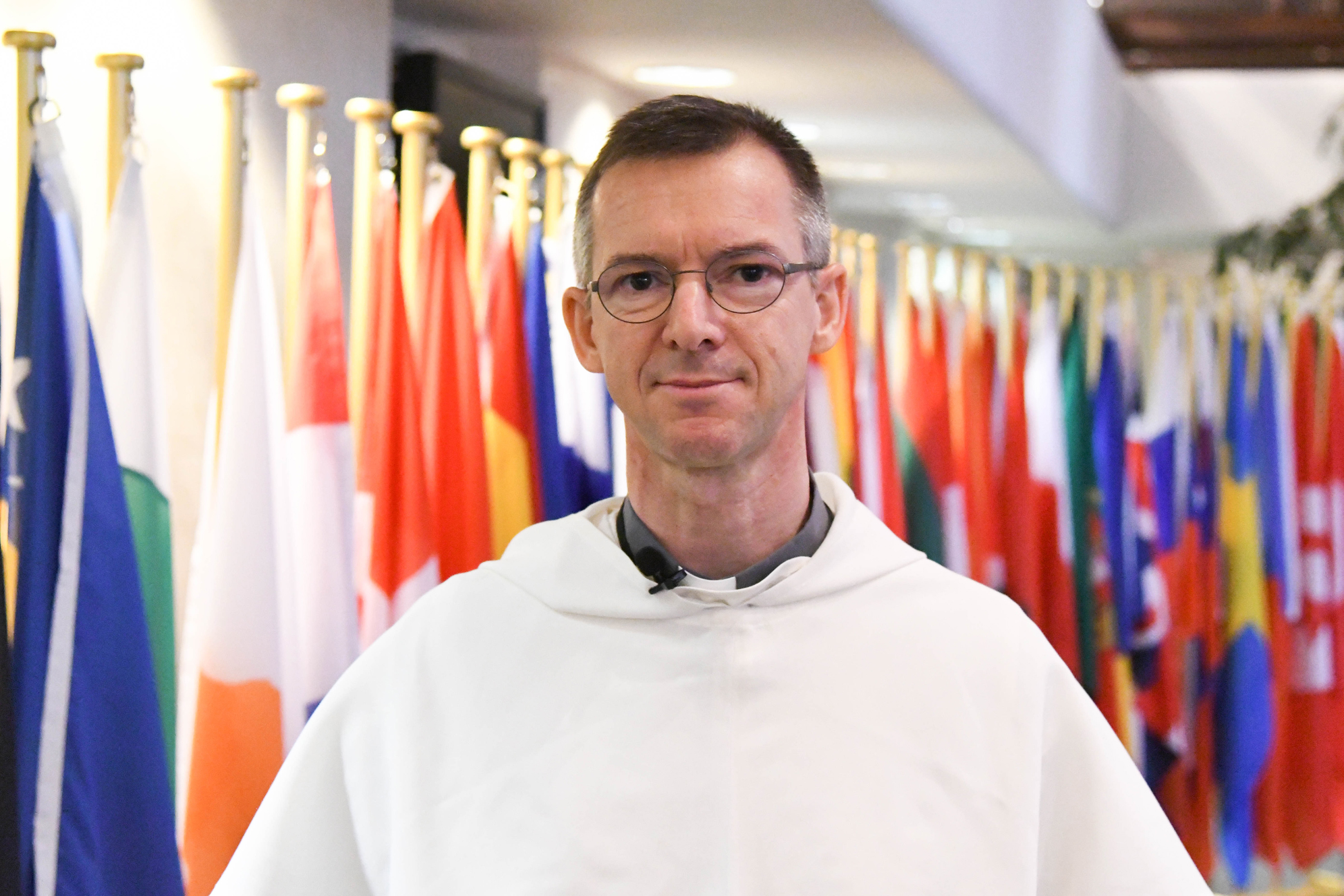INTERVIEW
Today, August 31st, the Dominican priest ends his service as Secretary General of the Commission of Bishops’ Conferences of the European Union. He shared his thoughts on his experience in Brussels with SIR, while a new assignment lies ahead in Erbil, Iraq. Reflections on community democracy (“the institutions should decide not on behalf of the citizens, but with the citizens”), the role of the faithful in building the common European home: “we need Christians who are properly formed, competent and engaged in society, in the economy, in politics”, he said.

Father Olivier Poquillon is preparing his suitcases: today, Saturday 31 August, his three-year service as Secretary General of the COMECE (Commission of the Bishops’ Conferences of the European Community) comes to an end. The new destination is Erbil, in northern Iraq. In fact, he is returning to the Asian country: he was there earlier as a professor at the University of Mosul. “The return of the Christian population is a major challenge in that world region”, he told SIR. War was followed by Daesh and the local community was forcibly dispersed, forced to abandon the Nineveh Plains, “yet the Christian presence in those territories plays an important role of reconciliation and dialogue” between the different components of the country and between religions. Dominican Father Poquillon, born in 1966, has had extensive international experience: before coming to Brussels he carried out his ministry in the Balkans, Africa, the Middle East, the United Nations and Strasbourg. Spanish-born Manuel Barrios Prieto has been appointed as General Secretary and will succeed Fr. Olivier Poquillon on 1 September.
You will be returning to Iraq after your ecclesial commitment in Europe: what’s your preliminary assessment?
My years here at COMECE have been interesting and intense. The Catholic Church intends to make a positive contribution to the European debate, closely following the institutional and legislative process, bringing the voice of the people, listening to the expectations of local communities, encouraging political reflection in view of decisions for the common good.
The human person – every man and every woman – should always be at the centre of political action. The spiritual and cultural dimension of European identity must therefore be enhanced.
COMECE pursues this direction in its relationship with EU institutions. I wish my successor, Don Manuel, satisfaction and success in this endeavour, and I will assure him my constant encouragement and prayers. My next service will be carried out first of all among the people – the many poor and refugees – of the Latin-rite parish in Erbil and, moreover, it will be directed to the reconstruction of the Dominican convent in Mosul.
Father Poquillon, what are the main challenges that the European Union is confronted with today?
In my opinion, the first challenge concerns the functioning of European institutions, the relationship between institutions and citizens and, consequently, the ability to respond to citizens’ high expectations. Given the rapid social changes we are experiencing, accelerated by the digital age, it is important to rethink democratic processes. In other words, it is important for the institutions to decide not on behalf of the citizens, but with the citizens. A response to populism can be built on these grounds. There is also, in relation to this, a problem regarding the legitimacy of the institutions, at national and European level alike. Thus
the relations established between Europe and the local realities – Municipalities, Regions, intermediate bodies, local territories and populations – are of the utmost importance.
The environment is a specific theme that requires renewed and timely attention: it involves the protection of Creation, the territory in which we live, the resources of nature, the economy and the production and consumption systems, requiring necessary changes in our lifestyles, as Pope Francis has pointed out in “Laudato si’.”
Article 17 of the European Union’s Constitution calls for a dialogue with the Churches and religious communities in EU countries. Do political institutions listen to the voice of the Churches?
This dialogue is exposed to attacks by various lobbies and political currents on the right and left, which have not, however, grasped the constructive and proactive role that the Churches and religious communities can play within European society, especially in building solid social relations and giving a voice to those with no voice. Moreover, these lobbies challenge a fundamental right: religious freedom, an essential component of human life. Article 17, I would observe, is not a matter for specialists, but a process that should concern everyone.
The Churches and religious communities have no intention of interfering in the political arena, let alone replacing political decision-makers:
instead they can enrich the public debate, stimulating reflections inspired by their concrete commitment in support of families, young people, the most vulnerable…
In an era that sees the resurgence of nationalisms and walls, which original contributions can Christians give to the construction of the “common European home”?
First of all, it should be said that the Christian community is not a monolith. It includes people of all ages and social conditions, living in virtually all parts of Europe. Our communities are an example of “unity in diversity” (the motto of the European Union, Ed.’s note), they are not cenacles of the immaculate but gatherings of sinners on a journey who have at heart the construction of the common good on the basis of universal values: peace, mutual respect, self-giving to others, openness to the world. These are elements that also reside in the DNA of the European Union and that Pope Francis has repeatedly highlighted when speaking of Europe. But we need Christians who are properly formed, competent and engaged in society, in the economy, in politics. The European bishops share such themes and approaches, to which COMECE is deeply committed.